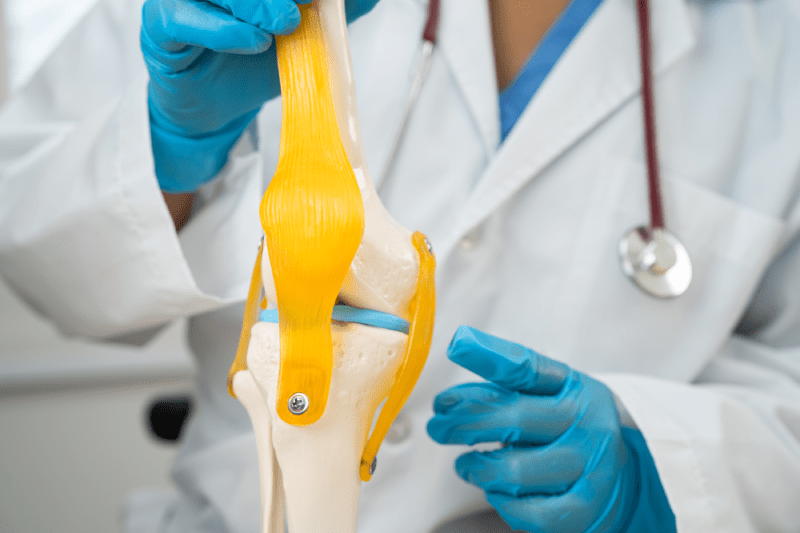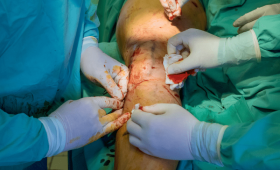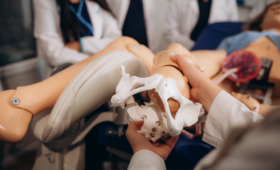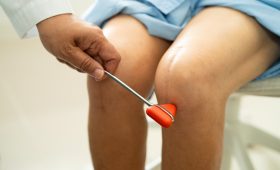Is there an ideal age for knee replacement surgery?
There is no single “ideal” age for knee replacement surgery, but it is generally considered most suitable for individuals between the ages of 50 and 80. In this age range, patients’ joint wear and tear and arthritis are advanced, and the potential for the surgery to improve their quality of life is high.
Modern prostheses are designed to be long-lasting, and they generally offer a long-term solution for patients in this age group. The most important factor is not the patient’s chronological age, but rather their general health status and the limitations on their daily life activities.
What is the effect of age on the decision to have surgery?
Age is an important factor to consider when deciding on knee replacement surgery, but it is not the sole determinant. Surgeons evaluate the patient’s activity level, pain level, and overall health status. In young patients (under 50), the prosthesis’s lifespan may be shorter because there is a higher risk of the prosthesis wearing out in young and active individuals. In older patients, their general health status and surgical risks should be evaluated more carefully. The goal of the surgery is to alleviate the functional limitations in the patient’s daily life.
Can young patients under 50 have knee replacement surgery?
Yes, young patients under the age of 50 can also have knee replacement surgery. However, this is usually considered in rare cases with severe joint damage, such as from osteoarthritis, rheumatoid arthritis, trauma, or congenital knee problems. Since young patients are more active, there is a higher risk of the prosthesis wearing out faster, and revision surgery may be needed in the future. For this reason, surgeons advise young patients to try all other treatment methods (physical therapy, medications, injections) before making the decision for surgery.
Can elderly patients (80+) have surgery?
Yes, patients aged 80 and over can also have knee replacement surgery. There is no upper age limit for the surgery. The important thing is that the patient’s general health condition is sufficient to withstand the surgery and the recovery process. Chronic diseases such as heart, lung, and kidney functions, diabetes, and blood pressure must be under control. Thanks to experienced surgeons and modern anesthesia techniques, surgical risks for elderly patients are minimized, and their quality of life can be significantly improved.
What are the advantages of knee replacement surgery in young patients?
The most important advantage of knee replacement surgery in young patients is that they get rid of pain and have a more active and high quality of life. Young patients generally recover faster and regain their muscle strength and mobility more easily. They can adapt better to post-operative rehabilitation. This allows them to return to their work and social lives early and enables them to live the later years of their lives more comfortably.
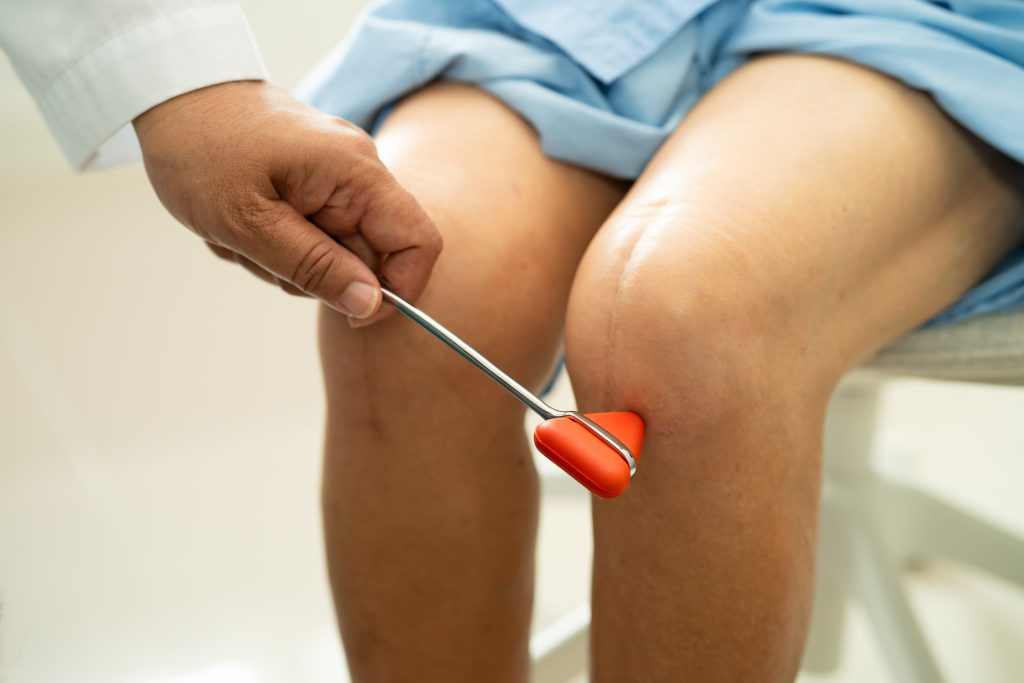
What are the disadvantages of knee replacement surgery in young patients?
The biggest disadvantage of knee replacement surgery in young patients is related to the lifespan of the prosthesis. The prostheses can wear out faster due to high activity levels. This means that the patient may need to undergo one or more revision surgeries in the coming years. Each revision surgery is more complex and has more potential risks than the first surgery. Therefore, the decision for surgery must be made very carefully.
What are the risks of knee replacement surgery in elderly patients?
The risks of knee replacement surgery in elderly patients may be higher than in young patients. These risks may include complications related to anesthesia, infection, blood clotting, and delayed wound healing. However, thanks to modern anesthesia techniques and surgical methods, these risks have been significantly reduced. The patient’s general health condition is determined with a detailed pre-operative evaluation, and the risks are minimized.
In what situations should surgery be postponed for elderly patients?
For an elderly patient to have knee replacement surgery, their general health condition must be stable. Conditions such as uncontrolled diabetes, serious heart or lung diseases, active infections, or very low bone density may require the surgery to be postponed. The surgeon will determine the most suitable time for the surgery by thoroughly reviewing the patient’s medical history and performing necessary tests.
How does age affect the speed of post-operative recovery?
Age can directly affect the speed of post-operative recovery. Since young patients generally have stronger muscles and a better overall condition, their recovery processes are faster. They respond more quickly to physical therapy and can return to their normal activities earlier. In older patients, the recovery process may be slower. However, this is just a generalization; a healthy and active 70-year-old patient may recover faster than a sedentary 50-year-old patient.
What is the post-operative physical therapy process like for elderly patients?
The post-operative physical therapy process for elderly patients may proceed more slowly and in a more controlled manner compared to young patients. Physical therapy sessions focus on slowly increasing muscle strength and joint mobility. The patient increases their mobility by using assistive equipment such as a walker or cane. Being patient and regularly following the physical therapist’s instructions is of vital importance for a successful recovery.
Does the lifespan of the prosthesis vary with age?
Yes, the lifespan of the prosthesis can vary with the patient’s age. Young and active patients put more stress on their prostheses, so the risk of the prosthesis wearing out and loosening is higher. In older and less active patients, the prosthesis may last longer because it is subjected to less load. Modern knee prostheses are designed to last 15-25 years or more. However, this lifespan depends on the patient’s lifestyle and general health status.
What alternatives are there for a patient under 40?
In patients under 40, knee replacement surgery should be considered as a last resort. Alternatives for this age group of patients include physical therapy, exercises, weight control, and cortisone or hyaluronic acid injections. Additionally, minimally invasive methods such as arthroscopic surgery or stem cell therapy to repair bone and cartilage damage can also be evaluated. If these treatments do not yield results, prosthesis surgery may be considered.
How does the quality of life change in elderly patients after knee replacement?
Knee replacement surgery in elderly patients can provide a dramatic improvement in quality of life. Getting rid of severe pain allows patients to perform their daily activities (walking, climbing stairs, shopping) independently. This also reduces social isolation and increases the patient’s self-confidence. The surgery allows patients to live a more active and energetic life.
What should be considered when deciding on the right age for surgery?
When deciding on the right age for surgery, chronological age is not the only measure. Things to consider are: the patient’s pain level, how much the pain restricts daily life activities, the failure of other treatment methods, and the patient’s physical and mental condition to be able to adapt to the post-operative rehabilitation program. When making this decision, the surgeon, patient, and patient’s relatives should be in collaboration.
What kind of sports can young patients with knee prostheses do?
Young patients with knee prostheses can turn to low-impact sports in the post-operative period. Activities such as walking, cycling, swimming, and golf are generally safe. However, they are advised to avoid sports that put excessive load on the knee joint and carry a risk of impact, such as basketball, football, tennis, or running. Such activities can cause the prosthesis to wear out faster.
Does the age of surgery affect the type of prosthesis?
Yes, the age of surgery can affect the choice of prosthesis. For young and active patients, ceramic-ceramic or ceramic-polyethylene prostheses, which are more resistant to wear and are expected to have a longer lifespan, may be preferred. For older and less active patients, metal-polyethylene prostheses can be a good option. The choice of prosthesis is determined specifically for the patient’s needs and based on the surgeon’s experience.
Is there a minimum age limit for knee replacement surgery?
There is no official minimum age limit for knee replacement surgery. However, surgeons generally advise patients under the age of 50 to try all alternatives and, if possible, postpone the surgery before recommending this operation. This is because surgery at a young age makes future revision surgery almost certain. This is done to extend the life of the prosthesis and to provide the best long-term outcome for the patient.
What are the most common problems encountered after knee replacement surgery in elderly patients?
The most common problems encountered after knee replacement surgery in elderly patients include delayed wound healing, infection, blood clotting, and general weakness. Additionally, balance problems and the risk of falling may increase. To reduce these risks, a detailed health check is performed before the surgery, and the patient is closely monitored after the surgery.
Which age groups do clinics in Turkey accept?
Most clinics in Turkey accept patients of all ages without a specific age restriction. The most important criterion is that the patient’s general health condition is sufficient to withstand the surgery. Some clinics may request additional evaluations and tests for very young or very old patients. This is done to keep the patient’s safety at the highest level.
What precautions are taken for elderly patients before the surgery?
Before the surgery, a comprehensive health check is performed for elderly patients. Heart, lung, and kidney functions are examined in detail. The anesthesiologist evaluates the patient’s general health condition and determines the safest anesthesia method for the surgery. Before the surgery, medications such as blood thinners are stopped, and if there is diabetes, it is brought under control. These precautions are taken to minimize the surgical risk.
Is having surgery at a young age a guarantee of revision surgery?
Having knee replacement surgery at a young age means that a future revision surgery is almost certain. However, this is not a “guarantee.” Prostheses are constantly being developed, and new materials are becoming more durable. In addition, the patient’s lifestyle and the care they show for their prosthesis also directly affect the life of the prosthesis. Low-impact sports and a healthy lifestyle can help postpone revision surgery.
When is the most appropriate time for knee replacement surgery?
The most appropriate time for knee replacement surgery is when the pain begins to seriously affect daily life activities. If it disturbs your sleep, prevents you from walking, makes it difficult to climb stairs, and other treatment methods no longer work, it is time to consider surgery. This decision should be made when the potential to improve your quality of life is high, regardless of your age.
What is the effect of age on the success of the surgery?
Age does not have a direct effect on the success of knee replacement surgery. The success of the surgery depends on the surgeon’s experience, the quality of the prosthesis used, and most importantly, the patient’s compliance with post-operative rehabilitation. Although young patients recover faster, elderly patients can also get very good results after the surgery. Success largely depends on the patient’s general health status and their motivation during the recovery process.
How should an elderly patient prepare for surgery?
Preparing an elderly patient for surgery is very important both physically and psychologically. In the pre-operative period, it is necessary to quit smoking, eat a healthy diet, and bring chronic diseases, if any, under control. Strengthening the muscles by doing the exercises recommended by the doctor will speed up the recovery process. Additionally, arranging a caregiver for support after the surgery and creating a safe environment at home are also important.
What is the life expectancy of the prosthesis in elderly patients?
The life expectancy of the prosthesis in elderly patients is generally longer than in young patients. This is because older patients put less load on the prosthesis and have lower activity levels. A knee replacement surgery performed in the 70-80 age range can offer a solution that will last for the rest of the patient’s life. This eliminates the need for the patient to undergo a second surgery.
What symptoms should be focused on when determining the right time for surgery?
When determining the right time for surgery, one should focus on the severity of the symptoms, not just age. Chronic knee pain that does not go away with rest, limited mobility, difficulty climbing stairs or sitting and standing up, and pain that lowers the quality of life are the most important symptoms. If these symptoms negatively affect the patient’s life and a solution cannot be reached with other treatments, it may be the right time for surgery.
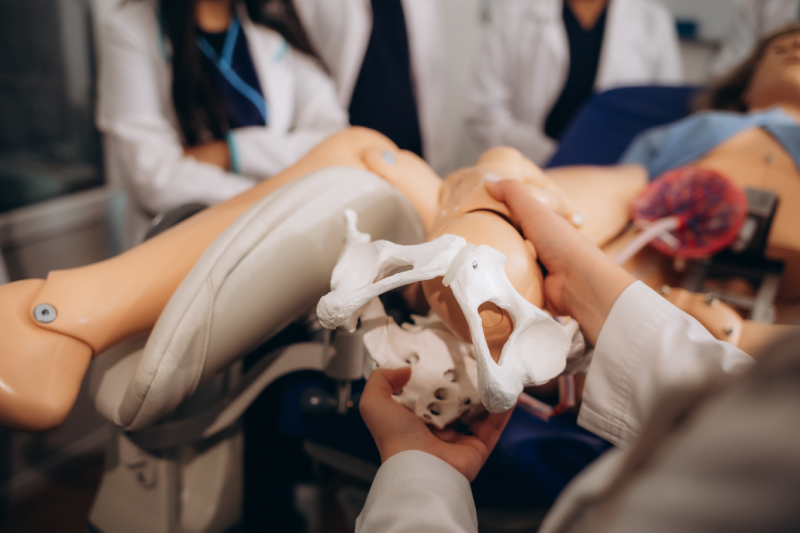
Is the cost of a knee prosthesis different for young patients?
No, the cost of knee replacement surgery generally does not differ according to the patient’s age. The cost depends on the complexity of the surgery, the type of prosthesis used, and the fees of the surgeon and the hospital. However, more durable and more expensive prostheses may be preferred in young patients, which can affect the total cost. In addition, the possibility of young patients needing revision surgery in the future can mean a higher cost in the long run.
What is the effect of age on possible post-operative complications?
Age can increase the risk of some post-operative complications. In elderly patients, the risk of cardiovascular (heart-vessel) and respiratory problems, blood clotting, and wound infection may be higher. However, these risks are minimized with a detailed pre-operative evaluation, appropriate anesthesia, and modern operating room conditions. Young patients have fewer risks, but prosthesis problems due to excessive activity can be seen.
What is the role of family members when deciding on surgery?
The role of family members is very important when deciding on surgery. Especially for elderly patients, providing support in the pre- and post-operative period is of vital importance. The family should provide accurate information about the patient’s general health, help during the recovery process, and keep their motivation high. The decision should be made together after all the patient’s and their family’s questions have been answered.
Are there age-specific rehabilitation programs?
Yes, there are age-specific rehabilitation programs. Programs designed for young patients can progress at a more intense and faster pace, while those for elderly patients can be slower, more careful, and less demanding. The physical therapist prepares the most suitable program on a personalized basis according to the patient’s age, health condition, and goals.
What are the ages of the youngest and oldest patients who have had knee replacement surgery?
The ages of the youngest and oldest patients who have had knee replacement surgery can vary over a very wide range due to rare cases. Generally, patients in their 20s can be operated on due to severe trauma or rheumatic diseases, while patients in their late 90s can also be successfully operated on if their general health condition is suitable. These extreme examples show that age alone is not an obstacle.
What are the benefits of having knee replacement surgery in old age?
The biggest benefit of having knee replacement surgery in old age is to spend the rest of one’s life pain-free and more mobile. The surgery allows the patient to regain their independence, perform daily tasks without help, and participate in social activities more comfortably. This generally increases the patient’s mental well-being and their enjoyment of life.
How are young patients with knee prostheses monitored?
Young patients with knee prostheses are monitored more closely than older patients. The surgeon plans regular follow-up appointments to check the condition of the prosthesis and the rate of wear. The patient’s lifestyle and activity levels are monitored, and precautions are taken when necessary. This regular follow-up helps to detect a possible revision surgery in advance.
Why is choosing a hospital after surgery important for elderly patients?
For elderly patients, choosing a hospital after surgery is as important as the success of the surgery. The hospital’s intensive care unit, the experience of the anesthesiologists, and post-operative follow-up services are of vital importance for elderly patients. Researching the hospital’s and the surgeon’s previous elderly patient success rates can help make the right choice.
Is it necessary to lose weight to have knee replacement surgery in old age?
Yes, losing weight to have knee replacement surgery in old age is very important for the success of the surgery and the recovery process. Excess weight increases the load on the new prosthesis, which can cause the prosthesis to wear out faster. In addition, excess weight increases the risk of anesthesia and surgical complications. Therefore, losing weight before the surgery helps the surgery to be safer and more successful.
